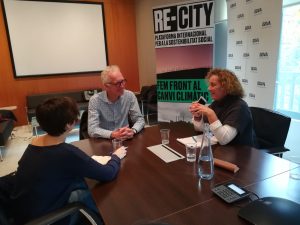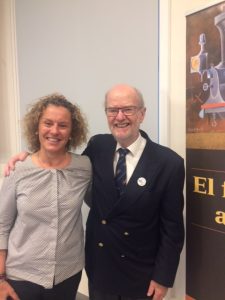One of the greatest democratic transformations of the 20th century was the achievement by women of both passive and active suffrage. In fact, we could say that democracy only materialised after the introduction of universal suffrage, i.e. when 51% of the population, until then excluded, came to have political rights, which are fundamental human rights.
Today, the objective of gender equality is recognised at international level as a central element for the development and progress of our societies. It must therefore involve all public authorities, and in particular parliaments, as the seat of popular sovereignty and a reflection of the society they wish to represent. However, there is still a long way to go before parliaments become leading actors in the fight for gender equality.
Currently, according to the latest data from the Inter-Parliamentary Union, women hold only 23.8% of the seats in all parliaments worldwide. The Catalan Parliament far exceeds this figure, with 42.9% of its members in the current legislature. This figure contrasts with the 5.4 (only seven women) in 1980, but is still insufficient to put an end to the existing male over-representation.
In patriarchal societies, gender power relations are reproduced in all spaces of social interaction, including political institutions. For this reason, the Catalan Parliament has launched a project that aims to banish patriarchy from the seat of popular sovereignty.
During the next 12 months an internal equality plan will make the Catalan Parliament one of the most advanced in Europe in terms of gender equality.
To ensure that equality between women and men is truly effective within the institution, the Equality Plan will have to include actions related to different areas of action. In terms of access, real parity should be guaranteed once and for all, with 50% of women and men. But this is not enough, we must ensure that this equality is produced in the capacity to influence, in decision making and in working conditions.
It is also necessary that the gender perspective is transversal to all the functions and actions of the chamber, and that the Parliament has a policy of zero tolerance towards sexual harassment or any other expression of male violence that affects women workers and members of parliament. With this work plan, the Catalan Parliament takes up the task initiated in the previous legislature by President Carme Forcadell. It was she who readjusted the timetables of the plenary sessions to favour the balance of the personal, family and working life of the deputies and the staff of the chamber.
And it was also President Forcadell who initiated the cycle ‘Effective equality between women and men, a challenge for the country’, in order to promote debate between members of civil society, experts and representatives of the different Catalan administrations.










